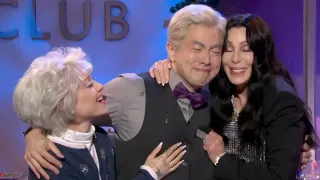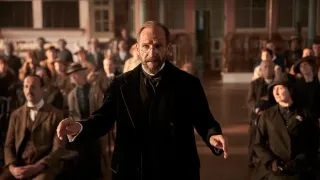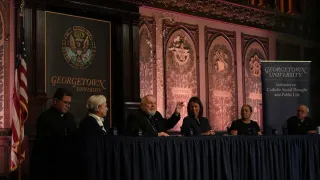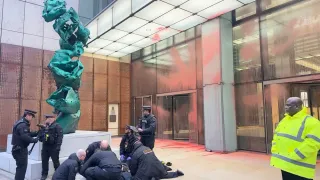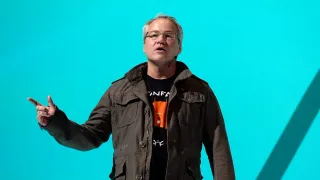September 9, 2019
Bosnian Capital Holds 1st Pride Parade Amid Heavy Security
Sabina Niksic READ TIME: 2 MIN.
Bosnia's capital, Sarajevo, held its first LGBT pride parade Sunday without incidents but amid heavy security to prevent violence from extremist groups, as opponents of the event held a counter-rally.
Using sniffer dogs and metal barriers, more than 1,000 police deployed along the route where hundreds of participants marched, singing and waving rainbow flags.
The colorful crowd held a huge pink banner with the pride's logo "Ima Izac!" which roughly translates as "Coming out." Cheerful participants blew whistles as they marched on a sunny day to the rhythm of drums while many people waved back from balconies and windows.
One of the organizers, Lejla Huremagic, told the gathering that the pride's message is one of solidarity and support for a society without the violence and discrimination that she said Bosnia's LGBT people are facing.
"If there was no violence I wouldn't be here today," she said in a speech. "This gives us strength and faith that prejudice against us will start to wane and that it will become better for all of us."
Huremagic added defiantly that "we are here, we exist ... we have the courage to fight for our lives."
About a mile away, dozens of followers of a conservative Islamic group earlier held a rally against the parade. They described the pride march as a "sin" and "humiliation" for Sarajevo, symbolically holding a prayer at the end of the protest.
"They want to bring this into our streets, our squares – among our children," Sanin Musa, Islamic theologian and chairman of the "Iskorak" group behind the event, said. "We want to fight against this, we are fighting against their LGBT way of life, which is being introduced into our schools, our homes, our universities. "
Extremists and hooligans in the past have attacked two queer events in Sarajevo, predominantly a Muslim city, fueling fears of violence ahead of this event. Bosnia remains deeply conservative, and Sarajevo is the last capital in the Balkans to hold a pride event.
U.S. and other Western ambassadors joined Sunday's march, along with local officials and activists from the region. The event was widely seen as a test for Bosnia which is seeking to move away from its wartime past toward membership in the European Union.
"Everyone who faces discrimination must support all the others in the same position," said 45-year-old Lejla Mijovic, an economic from Sarajevo. "We are all discriminated against in one way or another. That is why I walk today."
Members of Bosnia's embattled LGBT community have complained they face widespread harassment and attacks that are rarely prosecuted.
___
Jovana Gec in Belgrade, Serbia, and Radul Radovanovic in Sarajevo contributed to this report.
